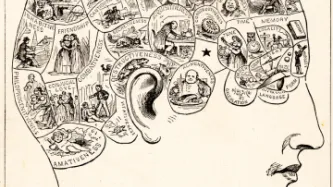Search
Content type: Examples
According to police plans to enhance “school safety”, security cameras and facial recognition will monitor children in Hong Kong in class and around educational facilities. The move is part of a trend also found in China, India, and the US toward mining children’s data, even though few benefits have been found.Article: Hong Kong schools adopt facial recognition and security camerasPublication: Biometric UpdateWriter: Christ Burt
Content type: Examples
The Focus1, or FuSi, from the US-based startup BrainCo, claims to measure how closely students are paying attention via electrodes that detect brain activity and send the data to teachers’ computers or a mobile app. Lights on the headband glow red, yellow, or blue to signify the level of engagement. A backlash against the headband has begun in China, where a local authorities ordered a school to suspend its use after it was profiled in the Wall Street Journal. Among other issues, it’s not clear…
Content type: Examples
The Nigerian startup uLesson, which began by offering pre-recorded lessons on dongles, now delivers livestreamed interactive video classes to learners in a number of African countries as well as the US and UK. One of uLesson's investors is Tencent, which also backed at least three Chinese EdTech companies between 2018 and 2021 before China began requiring companies teaching compulsory primary and middle school subjects in China to register as "nonprofit institutions".Article: Chinese-backed…
Content type: Examples
Vaccinating a large portion of the population against COVID-19 is a critical step toward curbing the pandemic – within China and around the world. But setting population percentage targets without clear protections for people’s rights opens up the possibility of authorities abusing the quota to force jabs. And this is exactly what has played out in recent months across the country.
The Chinese government’s forced vaccination tactics, which go far beyond “mandates” being debated and discussed…
Content type: Examples
Several of the Chinese companies producing personal protective equipment such as face masks were shown via undercover video footage to be using Uighur labour under a government labour transfer programme that pays regional subsidies for each worker taken in. The equipment is being shipped all over the world, including to the US and Latin America. In the course of the pandemic, the number of companies producing PPE in Xinjiang has risen from four to 51. At Medwell, one such company, Uighurs are…
Content type: Examples
Anger spread across Chinese social media after officials in the eastern city of Hangzhou suggested they would create a permanent version of its smartphone-based health rating app, developed with help from Alibaba, to curb coronavirus spread. Shortly before, Baidu’s chief executive proposed new rules to limit the collection of sensitive personal information in fighting the coronavirus.
Publication: Wall Street Journal
Writer: Liza Lin
Content type: Examples
China is adding new features to its coronavirus surveillance app, which has helped many workers and employers return to their former lives, and looks likely to become a permanent fixture. Zhou Jiangyong, the Communist Party secretary of the eastern city of Hangzhou, has said the city's app, which it has begun linking to citizens' medical records, should become a beloved "intimate health guardian" for residents, who can use it to schedule hospital visits. The authorities are considering…
Content type: Examples
The Chinese city of Hangzhou is considering making the app it requires residents to download and install for the COVID-19 crisis and that controls whether and where residents may travel a permanent fixture to create a "firewall to enhance people's health and immunity". Other countries may follow suit. Concerns include function creep, institutionalised geo-tracking, and the retention of data long after its original purpose has been fulfilled.
https://www.newsweek.com/covid-19-contact-tracing-…
Content type: Examples
The Australian journalist Chris Buckley, who reports for the New York Times, was forced to leave China on April 10 after 24 years of reporting on the country, bringing the number of journalists forced out of the country in the last year to 19.
After travelling to Wuhan to report on the unfolding outbreak on the day the city was locked down in January, he was told to stop when his press card expired in February. The division of the Foreign Ministry responsible for international media…
Content type: Examples
Amazon has spent $10 million to buy 1,500 cameras to take the temperature of workers from the Chinese firm Zhejiang Dahua Technology Company even though the US previously blacklisted Dahua because it was alleged to have helped China detain and monitor the Uighurs and other Muslim minorities.
The cameras work by comparing a person’s radiation with a separate infrared calibration device and uses face detection technology to make sure it is looking for heat in the right part of the subjects…
Content type: Examples
The Guangzhou Public Transportation Group has installed a biometric tablet next to bus drivers' seats so they can check the temperature and identity of every passenger who boards. The tablets will also photograph each passenger, allowing them to be identified by China's facial recognition network in the hope of helping control the spread of the novel coronavirus by enabling contact tracing for anyone displaying symptoms. The Group claims the data so gathered will only be used in the interests…
Content type: Examples
The Chinese Communist Party has worked to control the narrative and deflect blame during the coronavirus crisis by drawing on its state and CCP-owned media to disseminate content via its English-language Facebook pages and Twitter feed (even though these platforms are banned in China). China has emphasised rapid recovery and successful treatments, as well as positive stories about efforts such as building makeshift hospitals at speed. Later stories also seek to position China as a world leader…
Content type: Examples
Among the Chinese companies making efforts to help the country respond to the coronavirus are the technology giants Alibaba, Baidu, ByteDance, Tencent, Xiaomi, and Foxconn. In order to fight misinformation, Baidu created a map layer on top of its standard Map App that shows real-time locations of confirmed and suspected cases of the virus so that people can avoid hot spots. Qihoo 360 has launched a platform travellers can use to check if anyone on their recent train or plane trips has since…
Content type: Examples
China: Manufacturer Telepower adds fever detection and facial recognition to point-of-sale terminals
According to a company announcement, Telepower Communication (Telpo), a leading Chinese manufacturer of smart point-of-sale systems and intelligent hardware, has integrated into its terminals new features to support a wide variety of contactless use cases. The company’s family of terminals for catering, retail, payment, security, and other applications, include biometric, fever-detecting facial recognition, and ticket validation technology. The technology supports accurate identification of up…
Content type: Examples
China's airport screening, which includes scanning all arriving passengers for fever using “noncontact thermal imaging” since late January and requiring passengers to report their health status on arrival, look reassuring but won't stop the spread of the novel coronavirus because experience with other diseases shows it's very rare for screeners to detect infected passengers (even where they exist) and it has little impact on the course of an outbreak when they do. Ben Cowling, an epidemiologist…
Content type: Examples
Software on smartphones dictates whether an individual should be quarantined. Chinese citizens in 200 cities, beginning with Hangzhou, are required to install the Alipay Health Code app, developed by Hangzhou's local government with the help of Alipay owner Ant Financial, on their smartphones. After users fill in a form with personal information including name, national ID number, contact information, and details of recent travel, the software generates a QR code in one of three colors. Green…
Content type: Examples
Software on smartphones dictates whether an individual should be quarantined. Chinese citizens in 200 cities, beginning with Hangzhou, are required to install the Alipay Health Code app, developed by Hangzhou's local government with the help of Alipay owner Ant Financial, on their smartphones. After users fill in a form with personal details, the software generates a QR code in one of three colors. Green enables its holder to move about unrestricted. Those with yellow codes may be asked to stay…
Content type: Case Study
In the Xingjiang region of Western China, surveillance is being used to facilitate the government’s persecution of 8.6million Uighur Muslims.
Nurjamal Atawula, a Uighur woman, described how, in early 2016, police began regularly searching her home and calling her husband into the police station, as a result of his WeChat activity.
WeChat is a Chinese multi-purpose messaging, social media and mobile payment app. As of 2013, it was being used by around 1million Uighurs, but in 2014 WeChat was…
Content type: News & Analysis
This creates a restraint on all people who merely seek to do as people everywhere do: to communicate freely.
This is a particularly worrying development as it builds an unreliable, pervasive, and unnecessary technology on top of an unnecessary and exclusionary SIM card registration policy. Forcing people to register to use communication technology eradicates the potential for anonymity of communications, enables pervasive tracking and communications surveillance.
Building facial recognition…
Content type: News & Analysis
This piece originally appeared here.
Creative Commons Photo Credit: Source
Tech competition is being used to push a dangerous corporate agenda.
High-tech industries have become the new battlefield as the United States and China clash over tariffs and trade deficits. It’s a new truism that the two countries are locked in a race for dominance in artificial intelligence and that data could drive the outcome.
In this purported race for technological high ground, the argument often goes, China…
Content type: Report
Countries with powerful security agencies are spending literally billions to equip, finance and train security and surveillance agencies around the world — including authoritarian regimes. This is resulting in entrenched authoritarianism, further facilitation of abuse against people, and diversion of resources from long-term development programmes.
Privacy International's report 'Teach 'em to Phish: State Sponsors of Surveillance' examines this problem closely, providng examples from US, China…
Content type: Long Read
Privacy International (PI) has today released a new report, 'Teach 'em to Phish: State Sponsors of Surveillance', showing how countries with powerful security agencies are training, equipping, and directly financing foreign surveillance agencies.
Spurred by advances in technology, increased surveillance is both powered by and empowering rising authoritarianism globally, as well as attacks on democracy, rights, and the rule of law.
As well as providing a background to the issue, the report…
Content type: Press release
Privacy International has today released a report that looks at how powerful governments are financing, training and equipping countries — including authoritarian regimes — with surveillance capabilities. The report warns that rather than increasing security, this is entrenching authoritarianism.Countries with powerful security agencies are spending literally billions to equip, finance, and train security and surveillance agencies around the world — including authoritarian regimes. This is…
Content type: Examples
In January 2018 the Cyberspace Administration of China summoned representatives of Ant Financial Services Group, a subsidiary of Alibaba, to rebuke them for automatically enrolling its 520 million users in its credit-scoring system. The main complaint was that people using Ant's Alipay service were not properly notified that enrolling in the credit-scoring system would also grant Ant the right to share their personal financial data, including information about their income, savings, and…
Content type: Examples
In February 2018, police in China began using connected sunglasses equipped with facial recognition to scan crowds looking for suspected criminals. In a test at a busy train station in the city of Zhengzhou, police were able to identify and apprehend seven suspects accused of crimes ranging from hit-and-run to human trafficking. Police also identified 26 people using fake IDs, according to the Communist Party's People's Daily Newspaper. The glasses allow police officers to take a…
Content type: Examples
The Chinese company Tencent has issued a statement denying that it stores or analyses communications sent over WeChat, the country's most popular messaging platform after Geely Automobile chairman Li Shufu claimed there was no data privacy in China at a business forum. Shufu also claimed that Tencent chairman Pony Ma was "definitely looking at our WeChat messages every day". Under the Chinese government's rules, all social media groups are required to store user records. Although relatively…
Content type: Examples
In the remote western city Xinjiang, the Chinese government is using new technology and humans to monitor every aspect of citizens' lives. China, which has gradually increased restrictions in the region over the last ten years in response to unrest and violent attacks, blames the need for these measures on the region's 9 million Uighurs. This Muslim ethnic minority make up nearly half of the region's population, and the government accuses them of forming separatist groups and fuelling…
Content type: Examples
In 2015, Ant Financial, a Chinese company affiliated with Alibaba, began deploying "Sesame Credit scores". Ant, which also runs the popular payment app Alipay, claims that it uses both online and offline purchasing and spending habits to calculate a credit worthiness score for each of its more than 350 million users. Users who meet various thresholds qualify for bonuses such as small loans or waivers on deposits. Almost as soon as the system went live, users of popular social media apps such as…
Content type: Examples
In 2016 researchers in China claimed an experimental algorithm could correctly identify criminals based on images of their faces 89% of the time. The research involved training an algorithm on 90% of a dataset of 1,856 photos of Chinese males between 18 and 55 with no facial hair or markings. Among them were 730 ID pictures of convicted criminals or suspects wanted by the Ministry of Public Security. However, criminology experts warned that the results may merely reflect bias in the criminal…
Content type: Examples
In a 2017 study of patterns of postings on Chinese social media, three Harvard researchers disagreed with the widespread claim that the government's strategy is to post "50c party" posts that argue for the government's side in policy and political debates. Instead, the researchers estimated that the Chinese government fabricates as many as 448 million social media comments a year but found that these avoid controversial issues and arguments with government skeptics. Instead, the researchers…











